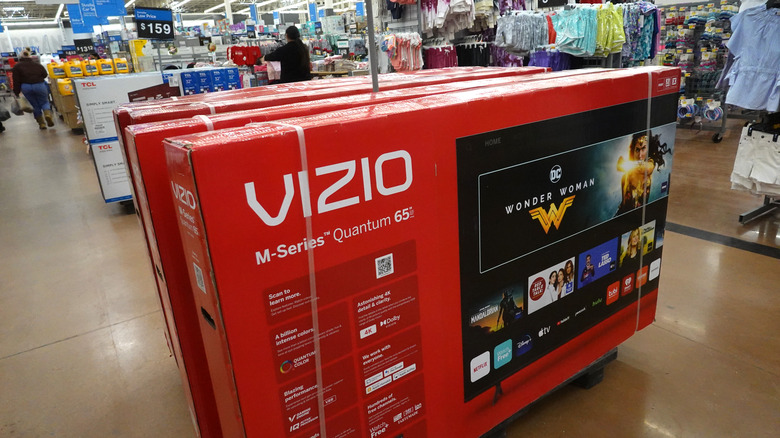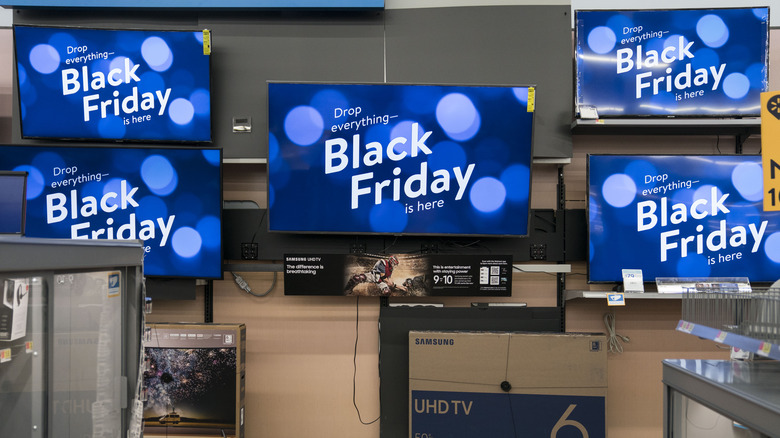Vizio Finds A Surprising Buyer In Walmart For Unexpected Reasons
In a surprising move, retail giant Walmart has announced the acquisition of TV manufacturer Vizio for $2.3 billion. While it would be logical for anyone to think that this acquisition is a strategic move from Walmart to turn offerings from Vizio into its in-house TV brand, the retail giant has already indicated that the actual reason for Vizio's acquisition isn't its TVs. Instead, Walmart seems more interested in the SmartCast operating system that powers all Vizio TVs.
Walmart seemingly wants to boost its ads business using the reach of SmartCast. For the uninitiated, Vizio's SmartCast operating system allows users to stream free ad-supported content on their TVs. By going this route, Walmart expects to become a player of note in the booming world of connected TV advertising. Given that there are over 18 million active SmartCast accounts, there is no denying that the platform offers a wealth of advertising potential.
Walmart's latest move comes close on the heels of reports about advertisers warming up to showcasing their ads on streaming platforms. If things turn out as planned, Walmart's acquisition of Vizio could end up helping the company create an entirely new revenue stream that would complement the company's existing low-margin retail business. Walmart's existing ad business hit sales figures of $3.4 billion in 2023, according to BusinessWire, which accounted for less than 1% of the company's sales. It's certainly not the only game-changing investment Walmart has tried in recent memory.
What happens to Vizio TVs post the acquisition?
Given that Walmart's interest in Vizio isn't because of the latter's affordable TVs, it will be interesting to see what the retail giant does to the brand. Walmart themselves haven't quite cleared the air around the question of whether Vizio will continue to exist as an affordable TV brand post-acquisition.
However, given Vizio's popularity in the affordable to mid-range TV space, chances are Walmart will let Vizio continue making and selling these TVs. It will also be interesting to see whether Vizio becomes the in-house TV brand for Walmart, a move that would make sense post-acquisition.
Walmart's transparent plan to integrate SmartCast with its advertising arm, Walmart Connect, has predictably raised eyebrows regarding privacy and user experience. Personalized advertising, often fueled by intrusive data collection, has already faced significant criticism, and this acquisition fuels those concerns. Viewers might envision themselves bombarded with ads for every product they've casually mentioned near their TV, creating an unsettlingly Orwellian experience.
However, it's not all doom and gloom. The increased competition in the smart TV market could also spark innovation, potentially resulting in new features and more user-friendly interfaces. It will be interesting to see how Walmart balances these possible eventualities.

